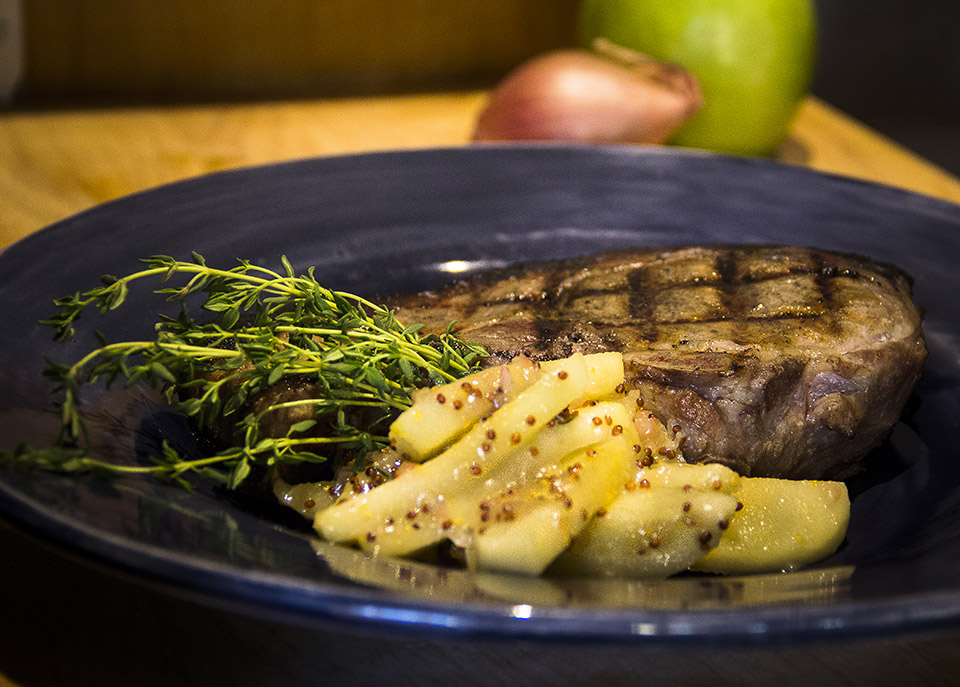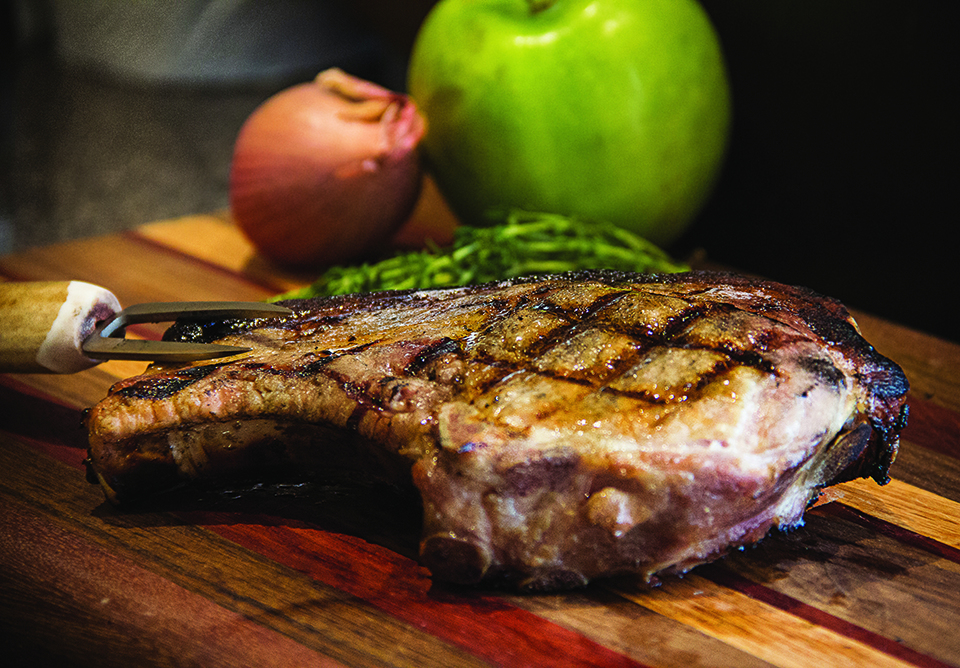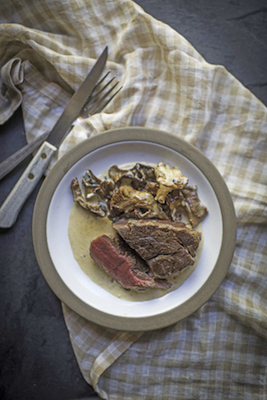written by Thor Erickson | photos by Jenn Redd
When I was 9 years old, my family of six relocated from a small house in the big city to a big house in a small town in the country. My father had a dream that we would become a self-sustaining family commune—raising all our own meat and vegetables, making our own macramé clothing, and on the cover of the Whole Earth Catalog.
His first act was buying three steers, which he aptly named Breakfast, Lunch and Dinner, in hopes that we would not see them as pets but as our future meals. He would watch them as they slowly chewed the alfalfa hay, and he would wax about the great steaks, roasts and burgers that would soon be ours. In the summer, we picked wild elderberries and with them made jam, wine and vinegar. In the fall, we grew pumpkins and sold them for Halloween jack-o-lanterns.
For my tenth birthday, my parents gave me two piglets. One was brown, the other black. I named them Lenny and Squiggy after my favorite characters in the show “Laverne & Shirley.” I had no idea how to raise them. Along with the pigs, my dad gave me a book, Raising Pigs Successfully, that told me everything I needed to know—building an escape-proof pen (from which Lenny and Squiggy escaped dozens of times), proper feeding (they ate a lot of elderberries and pumpkins), and lastly, how to butcher pigs. I was apprehensive to read this chapter. I fed, watered and had daily talks with my two swine friends. Before I knew it, they had both grown to about 200 pounds. It was not fair to these pigs to force them to carry around more weight.
I read the chapter on pig slaughtering and butchery. Following the instructions, I fed them a last meal of raw eggs (from our chickens, of course) washed down with some of the first vintage of elderberry wine, and did the deed. It was a few months before I became detached (and hungry) enough to think about consuming the meat from the pigs. When I finally bit into one of the juicy pork chops, I could not believe how great it tasted. All of the hard work and love I put into caring for these animals was right there. I was sad that I had to share it with my sisters.
As I grew older and became a cook and then a chef, I took with me the knowledge that if good food and care go into raising food, that food will be good as well. This is especially important where meat is concerned. I like to know how animals are raised before I cook and eat them. Oregon is host to many wonderful heritage pork producers. One farm I visit regularly is Piggyback Ranch. Greg and Hilary Smith’s 54-acre biodynamic farm just outside of Bend is home to heritage breed hogs such as Gloucestershire Old Spot and English Large Blacks that are raised with the same love and care that I used with Lenny and Squiggy. In addition to pork, Piggyback also raises meat chickens and eggs. They do not, however, have any plans to make macramé clothes.
Apple Cider-Brined Braised Pork Chops with Warm Apple Mustard Sauce
by Thor Erickson
A definitive pork recipe that modernizes a classic.

In a large saucepan over medium-high heat, bring the water, salt, sugar, thyme, peppercorns and cloves to a boil. Cook for 2 to 3 minutes, stirring occasionally, or until the sugar and salt dissolve.
Remove from the heat, add the apple cider and ice cubes, and stir well.
Put the meat in a nonreactive pan or extra-large resealable bag and cover with the cooled brine.
Cover or tightly close the bag and refrigerate for 6 to 12 hours.
If you are using a resealable bag, rotate the pork a few times to make sure all of the meat is brined.
Before roasting, remove the pork and pat dry with paper towels.
Sauté the apple slices and shallots in a tablespoon of light oil over medium heat until shallots are translucent.
Add the riesling and mustard and reduce the sauce by half.
Don’t worry if the apples fall apart a bit.
Remove sauce from heat and swirl in the butter.
Adjust seasoning and serve with the pork chops.
Ingredients
Directions
In a large saucepan over medium-high heat, bring the water, salt, sugar, thyme, peppercorns and cloves to a boil. Cook for 2 to 3 minutes, stirring occasionally, or until the sugar and salt dissolve.
Remove from the heat, add the apple cider and ice cubes, and stir well.
Put the meat in a nonreactive pan or extra-large resealable bag and cover with the cooled brine.
Cover or tightly close the bag and refrigerate for 6 to 12 hours.
If you are using a resealable bag, rotate the pork a few times to make sure all of the meat is brined.
Before roasting, remove the pork and pat dry with paper towels.
Sauté the apple slices and shallots in a tablespoon of light oil over medium heat until shallots are translucent.
Add the riesling and mustard and reduce the sauce by half.
Don’t worry if the apples fall apart a bit.
Remove sauce from heat and swirl in the butter.
Adjust seasoning and serve with the pork chops.









